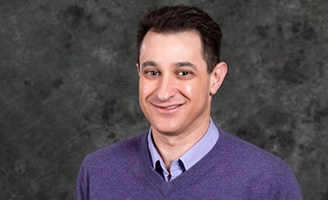


In little more than a year, Idahoans will begin making their selections as to who will become the next governor. The exceptionally good news is, at least on the Republican ticket, candidates are already staking out their space (and there’s plenty of it) to the right of the incumbent governor.
The prospective candidate to beat, as of this writing, is U.S. Rep. Raul Labrador. He’s not in the race yet, but polls put him ahead when it comes to support among likely Republican voters. Labrador has a solid conservative voting record and a high level of favorability in the western half of the state, which he represents in Congress. He gained a lot of points for the way he deftly handled critics at a recent town hall meeting in Meridian. Labrador is less known in the eastern half of the state, and as one can imagine, he’ll likely be attacked for voting against one interest group or another as he sought to contain spending and cronyism during his time in Washington, D.C.
Former Sen. Russ Fulcher has practically been campaigning for governor since he came within striking distance of taking out incumbent Gov. Butch Otter’s alien replicant in 2014. Time has allowed Fulcher, also with a solid history of conservative votes, to amass and retain a loyal following among conservatives statewide, which makes him formidable. While out of office, Fulcher has earned much credit and exposure for continuing to advance one of his signature policy goals, the repeal of the grocery tax. However, not having held office since he left the Senate, it’s hard for him to grab headlines like officeholders Labrador and Lt. Gov. Brad Little, another candidate for governor.
Voters are already seeing a lot from Tommy Ahlquist, a Boise businessman and former ER doctor from Weiser. Ahlquist has never held public office, which might play well with voters seeking a fresh perspective. Ahlquist is emphasizing the point that he’s a doer. He’s positioning himself as a conservative, promising to cut taxes and reduce government regulations, and he’s building a credible campaign, as evidenced by two introductory mailers that recently reached likely voters in the last several days. But no voting record doesn’t mean no record, and Ahlquist usually starts conversations (as he did on radio days ago) having to reassure Idahoans that there’s nothing more than a friendship (not an ideological kinship) at play that inspired him to give money to Otter’s Democrat opponent in 2014.
Little has his own set of advantages and problems. In recent months, Little has sought to distance himself from Otter, who appointed him to the lieutenant governor position. Little supported the grocery tax repeal and a constitutional amendment to limit government regulations. He appears frequently on TV and at events, representing the state in place of Otter.. He has deep Idaho roots and connections but, though he contends his governing starting point is as a libertarian, conservatives may have a hard time believing him because he has repeatedly voted for or supported tax increases and more government regulations both as a senator and as lieutenant governor.
After enduring a dozen mostly disappointing Otter years, Idahoans appear ready for something different. This may be a once-in-a-generation opportunity to elect a governor who can propel Idaho forward with a conservative vision and agenda that makes Idaho the best place in America to work, play, raise a family, start a business or retire. It might be hard to believe, but the 2018 campaign starts now.


